
This website supports three options for navigating through the comic: horizontal scrollbar, left and right keyboard arrows, and dragging the comic.
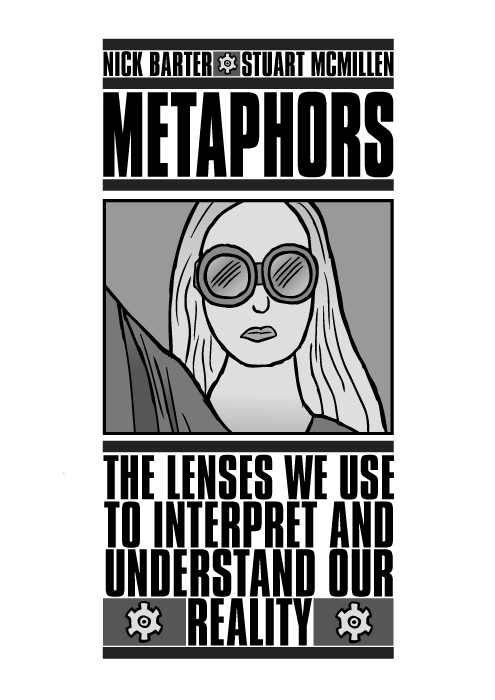
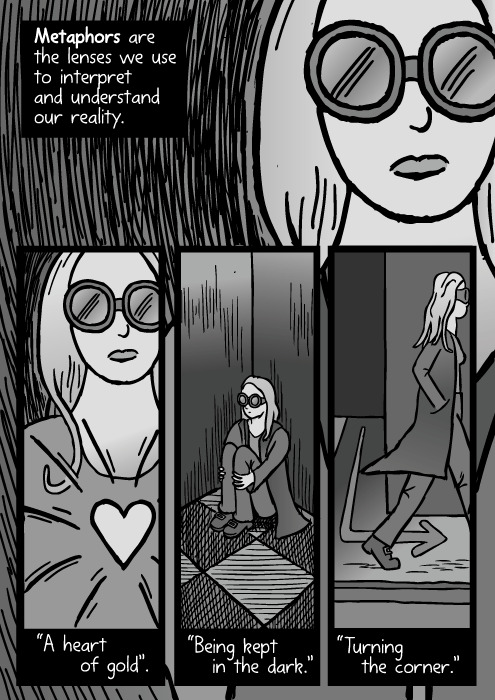
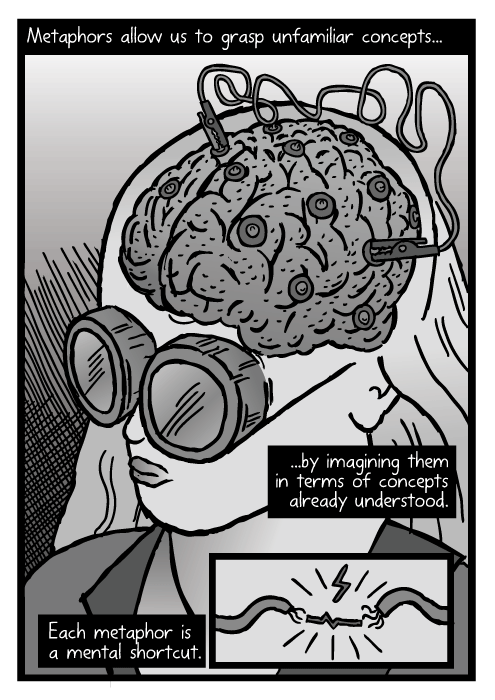
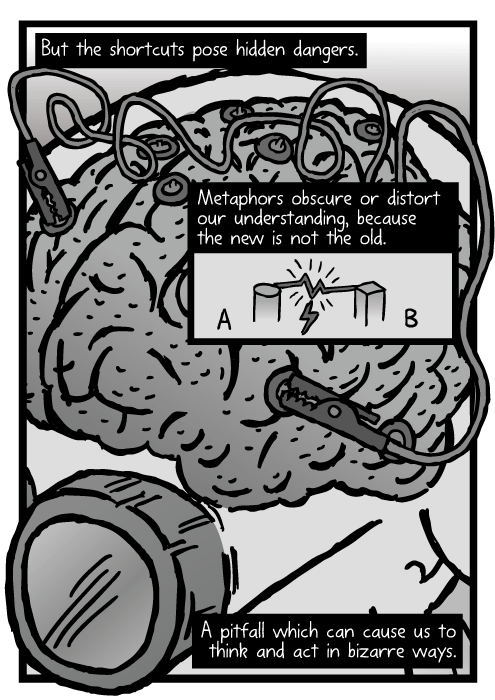
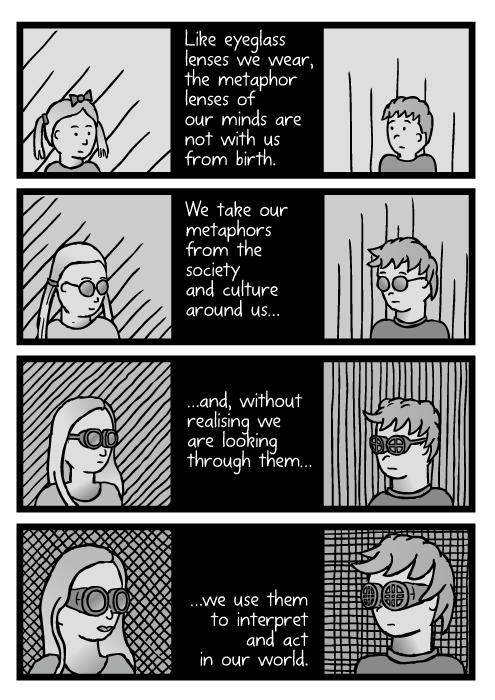
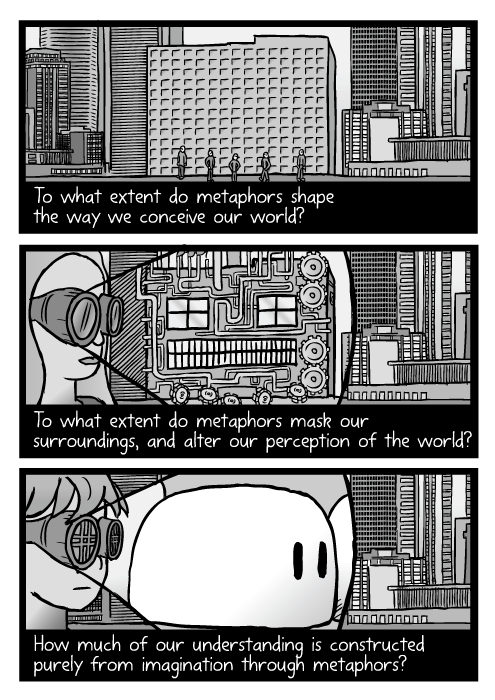
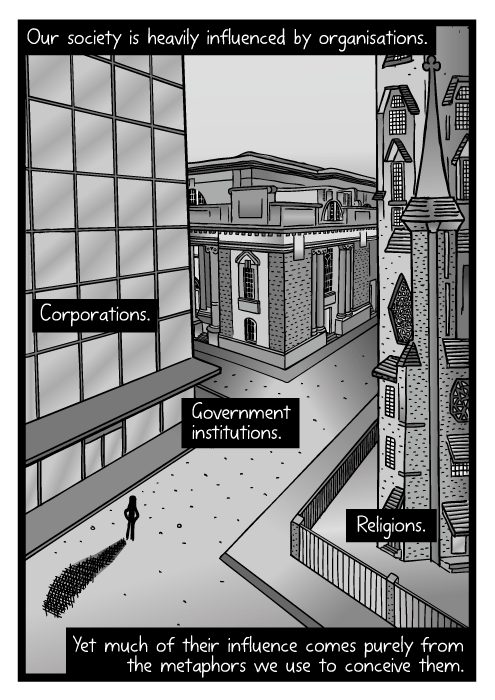
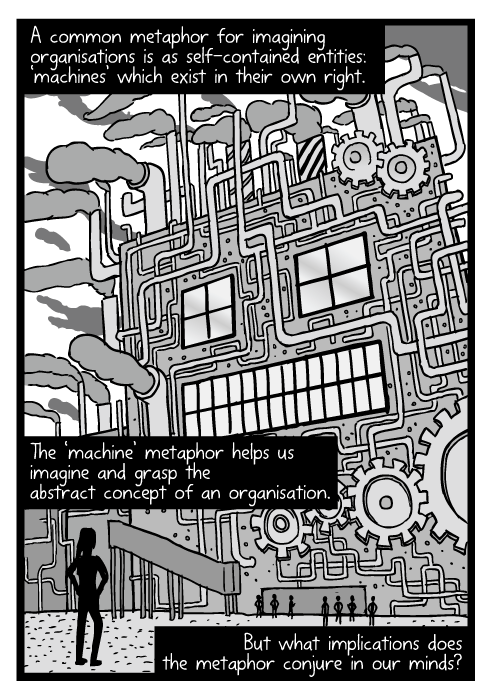
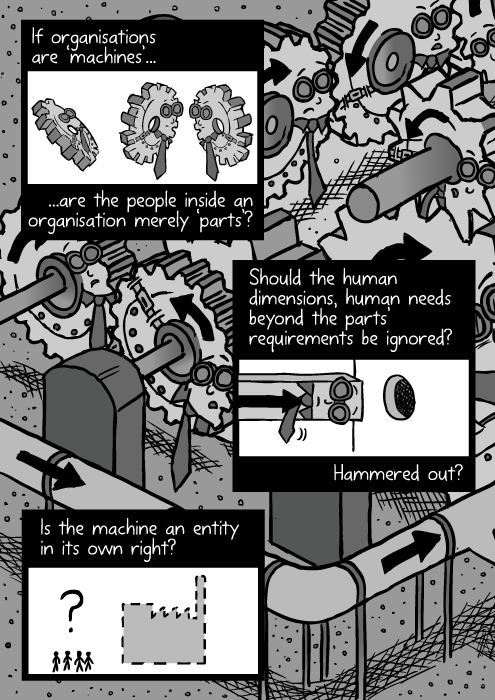
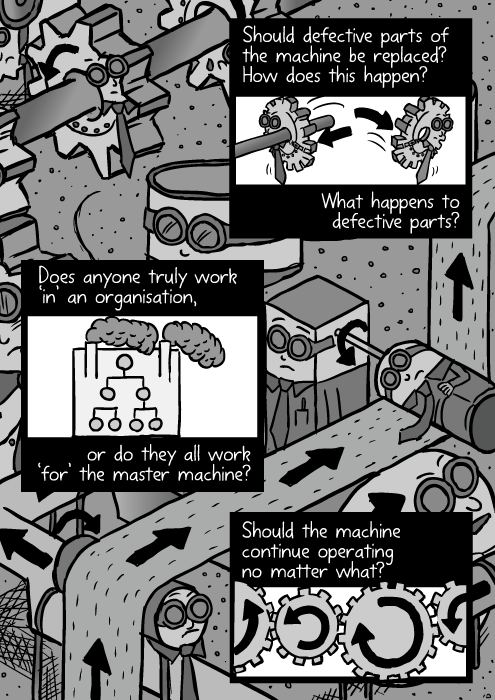
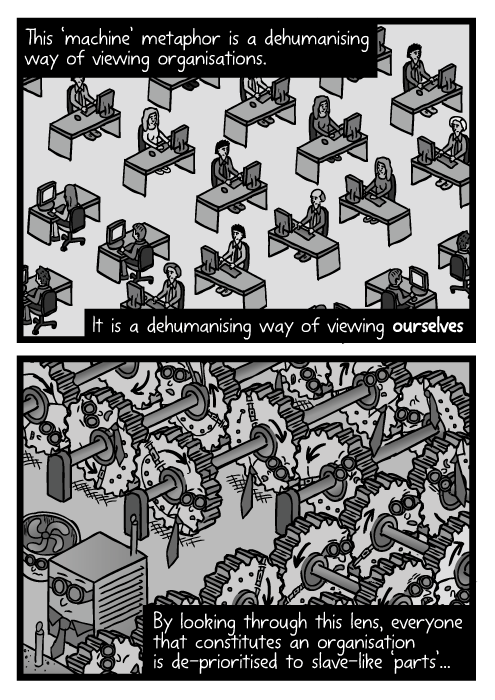
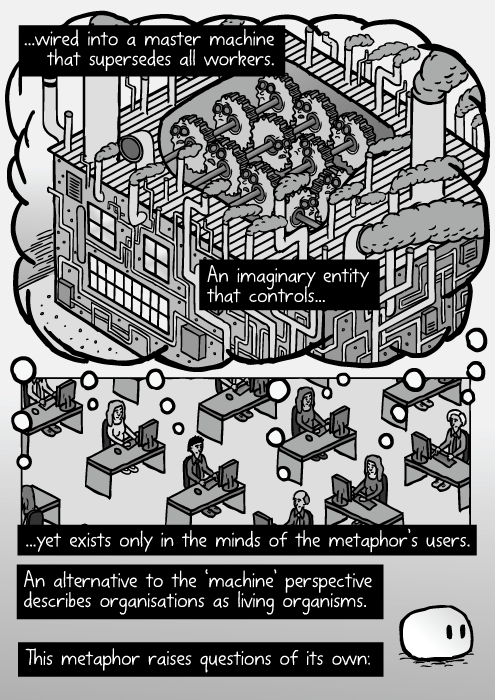
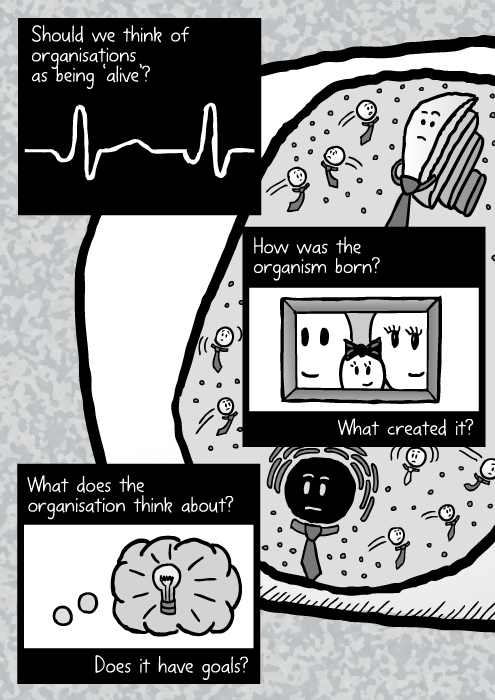
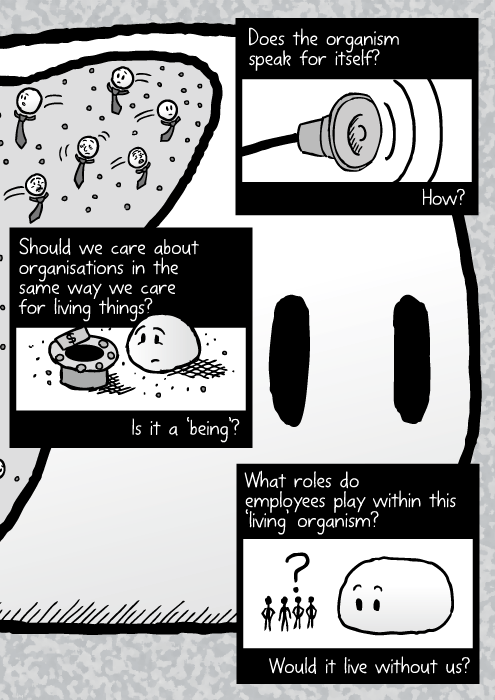
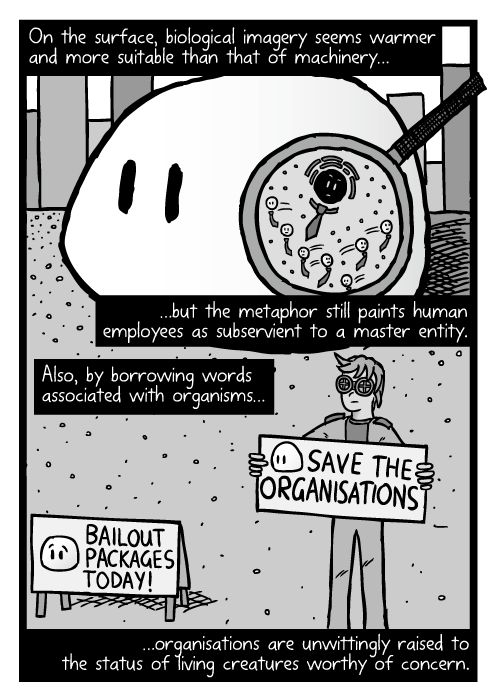
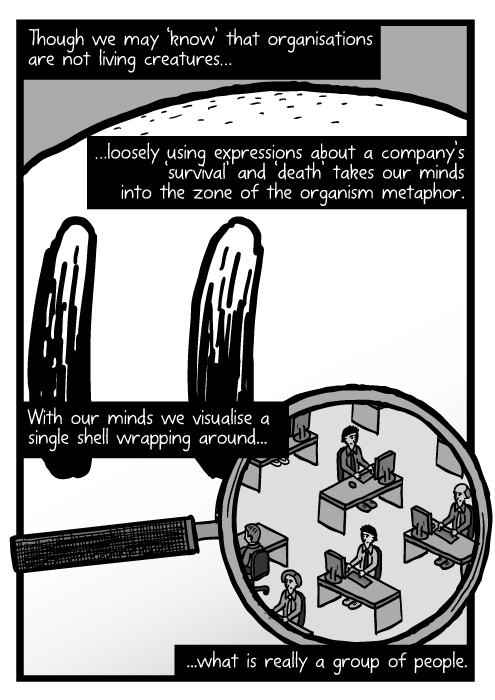
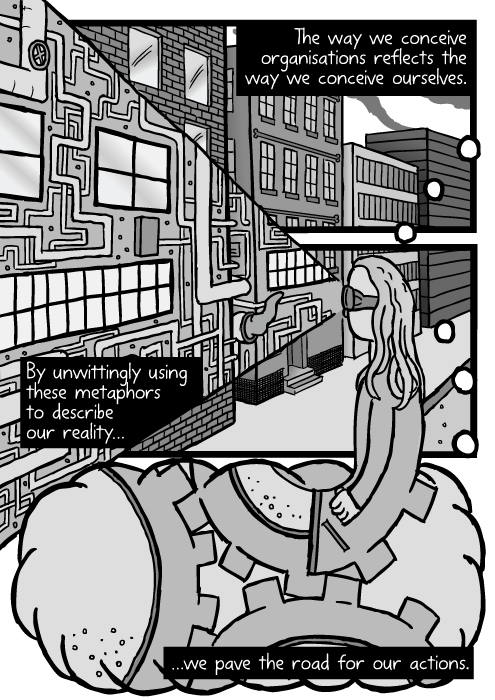
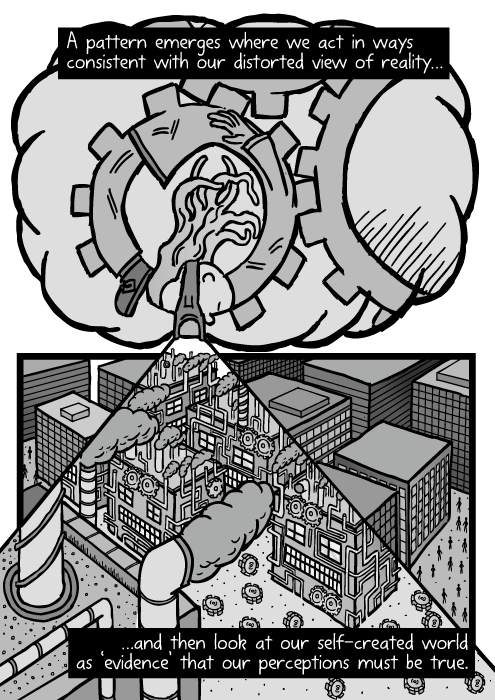
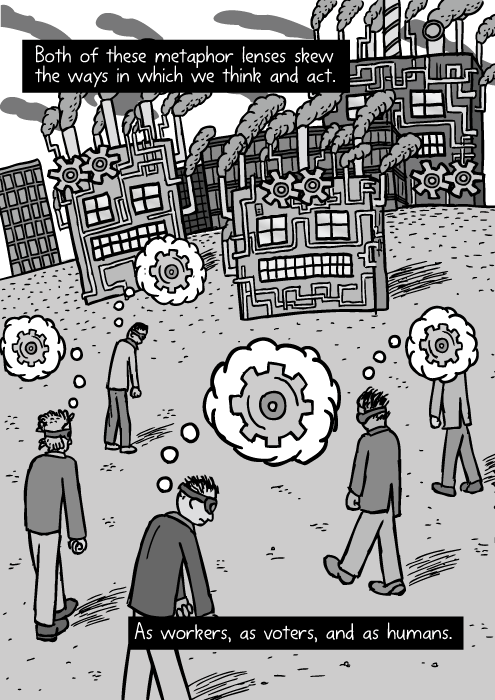
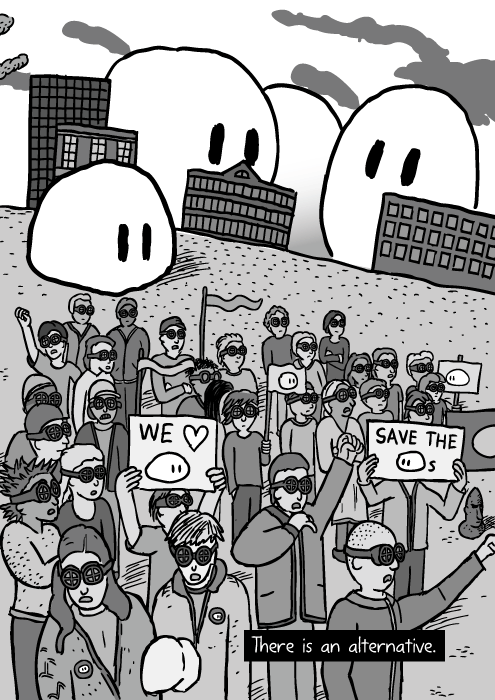
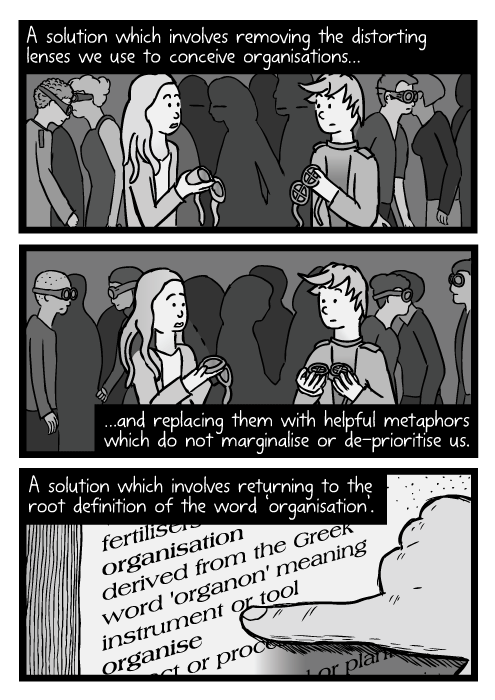
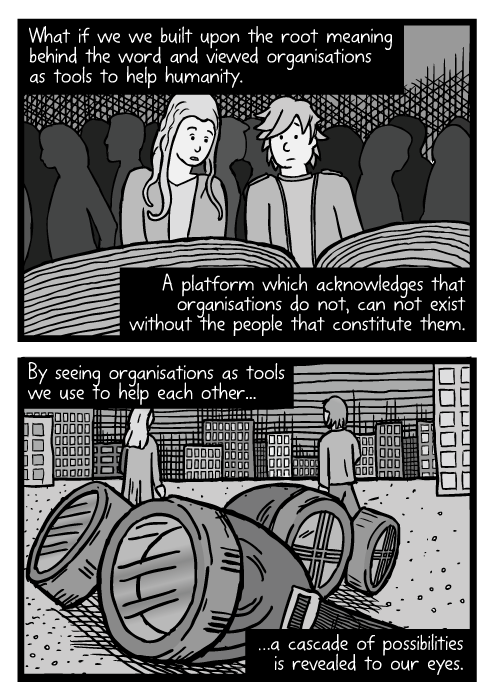
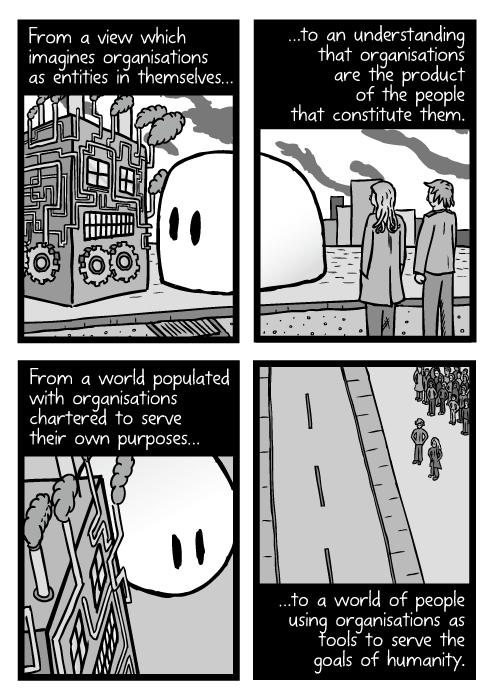
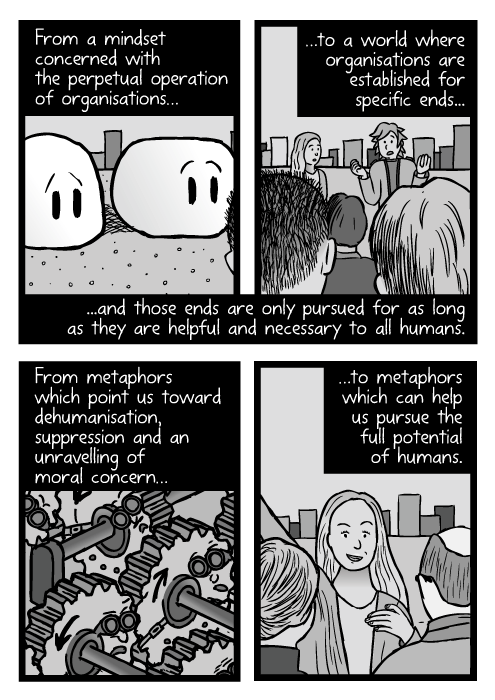
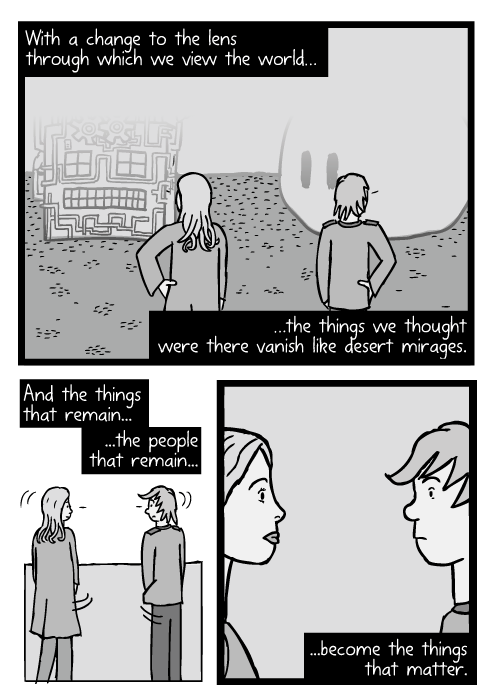
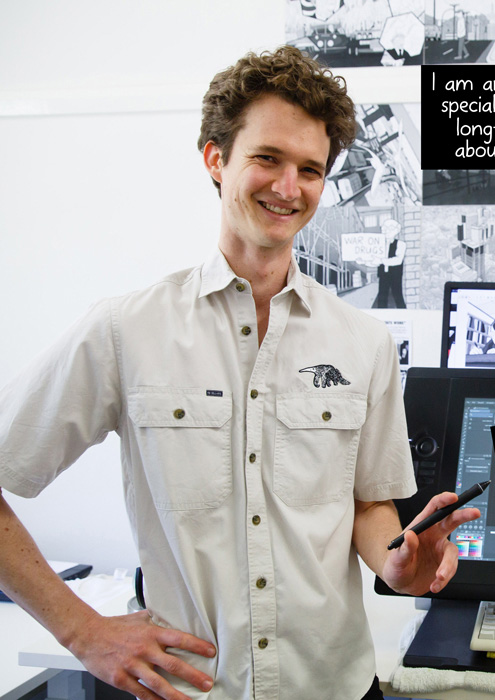
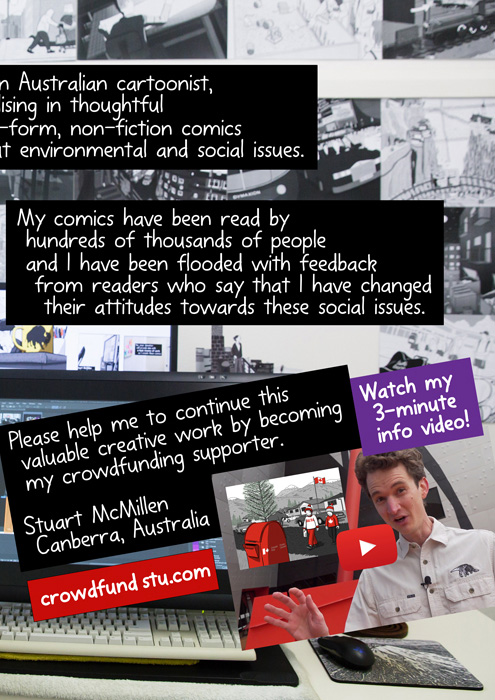
This comic about organisations and organisation metaphors was a collaboration between Dr Nick Barter (Griffith Business School) and Stuart McMillen (stuartmcmillen.com). Metaphors is based on Nick’s 2011 conference paper Metaphors that facilitate Organisational Understanding.
Read my reflective essay on Metaphors discussing how the collaboration came about, and my discussion of the comic’s meaning.
Download a PDF version of this comic. [15 MB]


How many invisible "energy slave" workers does it take to fuel our modern lifestyles? A comic about Buckminster Fuller and fossil fuels.

Today, global action to stop climate change is inconceivable. Yet, in 1938, global action to stop Nazi Germany was also inconceivable. The world was in Hitler denial.

Roughly half of the world’s entire oil supply is gone; half is left. How will our society choose to use the oil that remains? Comic about M. King Hubbert and his 'peak oil' theory of fossil fuel depletion.
Comments
Quux
I had a lot of trouble making it through the somewhat dull and biased book "Blinded by sight", but it talks about this a lot in the context of race relations. Interesting.
David Williams
Terrific comic and a great message.
Dá para grandes empresas e corporações mudarem o mundo? | BSN Educação
[…] do conjunto de pessoas que despende tempo, energia e intelecto para que ela exista. Em essência, uma empresa é uma alucinação coletiva. Ela agrupa o lado bom e o lado ruim dos que a […]
Pabriel
I really like how the metaphorical figure is symbolized as a "lens", changing perspective as the wearer changes his/her ideas on things in everyday life.
Patrick
I think this critique of the "organism" metaphor also applies to the concept of a species. Though cruelty towards animals is widely abominated, people seldom have compassion for animals in the wild. If a zebra is mauled to death by a lion, then that's too bad for the zebra--the species as a whole "benefits" from having its weaker members weeded out. This leads to the mistake of thinking that a species has inherent value apart from the members which comprise it--a zebra has no right to life, but God forbid zebras should go extinct!
Nick
Very very interesting, you inadvertently (or maybe not) stumble on the concept of semiotics and the immense power of the existing linguistic structures into which we are born.In fact, one could argue that the rigidly dictated systematic modes of perception which language encourages, naturally leads to a de-humanisation. As even though language is a social construct, below artifice of sociability, there is a rigid 'proper' way of understanding that lacks the volatility and dynamism of a true, natural ecosystem (as you highlighted in your other comic, the master-plan). Furthermore, our linguistic systems lack a status-quo, or natural cycle, instead being overall a linear system. This shifting yet unquestionable foundation to our perception, will, in my opinion, make us dehumanise ourselves, seeing ourselves as being within an 'organism' of language (I think the metaphor is relevant here and only here).
nisha
this is amazing it made me look at things in such a different way love it will definitely share this link
inger
Excellent thinking and display! Thanks, I will be sharing this with a joyful smile.
Jack
Wow
http://www.stuartmcmillen.com/comics_en/metaphors/ | Eric Gerlach
[…] http://www.stuartmcmillen.com/comics_en/metaphors/ […]
Tariq
I actually thought that the panels in page #5 might have offered a solution, what with the progression of ?heavier?, ?more distorting? metaphors being represented by bulkier, more cumbersome eyewear ? from glasses to goggles. So instead of taking off those mega goggles and seeing the world ?as it is?, it would be taking off those mega goggles and replacing them with something lighter or more flexible ? perhaps geek glasses or (heh heh) pince-nezzes, like the one Morpheus uses.But I get your issues on how to frame the metaphor itself, without dehumanizing the people using those metaphors ? an aspect of metaphors is that at some point, they start to break, and it becomes a struggle to make them fit perfectly. The usage of metaphor is fraught with choices, compromises and opportunity costs, and it?s rare and possibly impossible to get a metaphor that is analogous to the situation at hand.
Stuart
Hi Tariq, you are quite right. We cannot truly think without metaphors, and would need to replace our lenses with 'something else'.Nick and I considered alternative metaphors which the characters could use to conceive organisations. Something which was much smaller and human-controlled than the super-sized 'machines' and 'organisms' which were shown in the earlier panels.We were considering representing organisation as a 'keycard'-type device, or other type of 'tool' which the people could use for human-centric ends. Yet also step away from, and retain their humanity and identity.However, we couldn't settle on a suitable alternative metaphor, so just went with an ending which involved the characters taking off their unhelpful lenses.Valid comments - well spotted.
Tariq
To quibble with how you?ve presented the first two panels of page 21: while your text talks about replacing destructive metaphors with empowering, liberating ones, and yet you represent it by? showing the protagonists taking off their metaphor goggles.Would be more accurate to say that they replace their harmful goggles with different lenses or goggles, because that?s what it is, right? Replacing one metaphor with another. I mean, yes, the reader is supposed to ?know? that that?s what you *meant*, but as you imply in page 16, you may *know* this to be a metaphor, but metaphors skew how you think and act.And that?s a point that you really don?t dwell on in this comic ? that while metaphors skew how we think and act, we cannot truly think and act without metaphors, and that the price we pay for metaphors skewing our thinking and actions is that? we cannot envision a world without metaphor.
Yohan
Very cool post! I do think that choosing to change our metaphors is very difficult though. And I doubt that a truly non-metaphorical language can exist -- or if it did it would be so clunky and abstract that it would be of little use for sociopolitical ends such as these.I wrote a (largely positive) post about the connection between science and metaphor that you might like: http://wp.me/p1l9S2-2h
Metaphors: Stuart McMillen « DCSZ TOK Class Blog
[...] http://www.stuartmcmillen.com/comics_en/metaphors/#page-1 [...]
Gentleman Ranker
So if I take off the blinders of outdated metaphor, I'll get eye contact with a cute girl rather than be plunged into a Matrix-like world of struggle and separation from the blind majority?Such a deal. Why didn't somebody tell me before now?GRPS: I did write a dissertation about propaganda many years ago, so yes, I actually do get your main point. I just don't think it's quite that simple.
the road is long, but in the end… | Keep the game, change the rules
[...] making this reflection after reading just another great comic by Stuart McMillen called “Metaphors – The lenses we use to interpret and understand [...]
Jesper Kristensen
When I read Gareth Morgan's "Images of Organzation" what I took from it is that different lenses produce different questions and answers and that the real danger was being unaware that one was perhaps using only one metaphor to describe the world. Looking at an organization as a tool helps you push particular points, but that doesn't mean other metaphors are necessarily inappropriate or even more untrue than the one you seem to push. Using only a metaphor that is about "real people" or "organisms" may for instance ascribe intentionality to some things that are in fact impersonal, and thus it can be appropriate to use a "dehumanizing" metaphor because it is in fact not an intentional being producing the effects we observe.
Samantha
Nice one Stuart - well articulated and drawn... although I would argue that it's probably impossible to remove all the 'lenses' through which we see the world... however we see the world, it is going to be of necessity a simplification of reality. I do agree though at the very least it's good to be aware of the fact that we do in fact view the world through multiple lenses and to to try to incorporate this understanding into, and with a view to de-warping, our worldview...
Kristen
you might like this:www.tinyurl.com/trsl-e